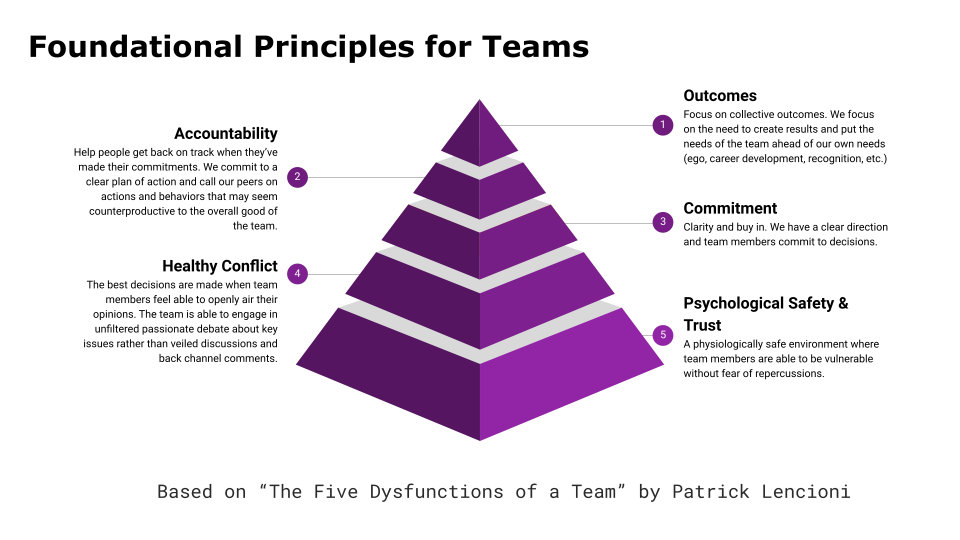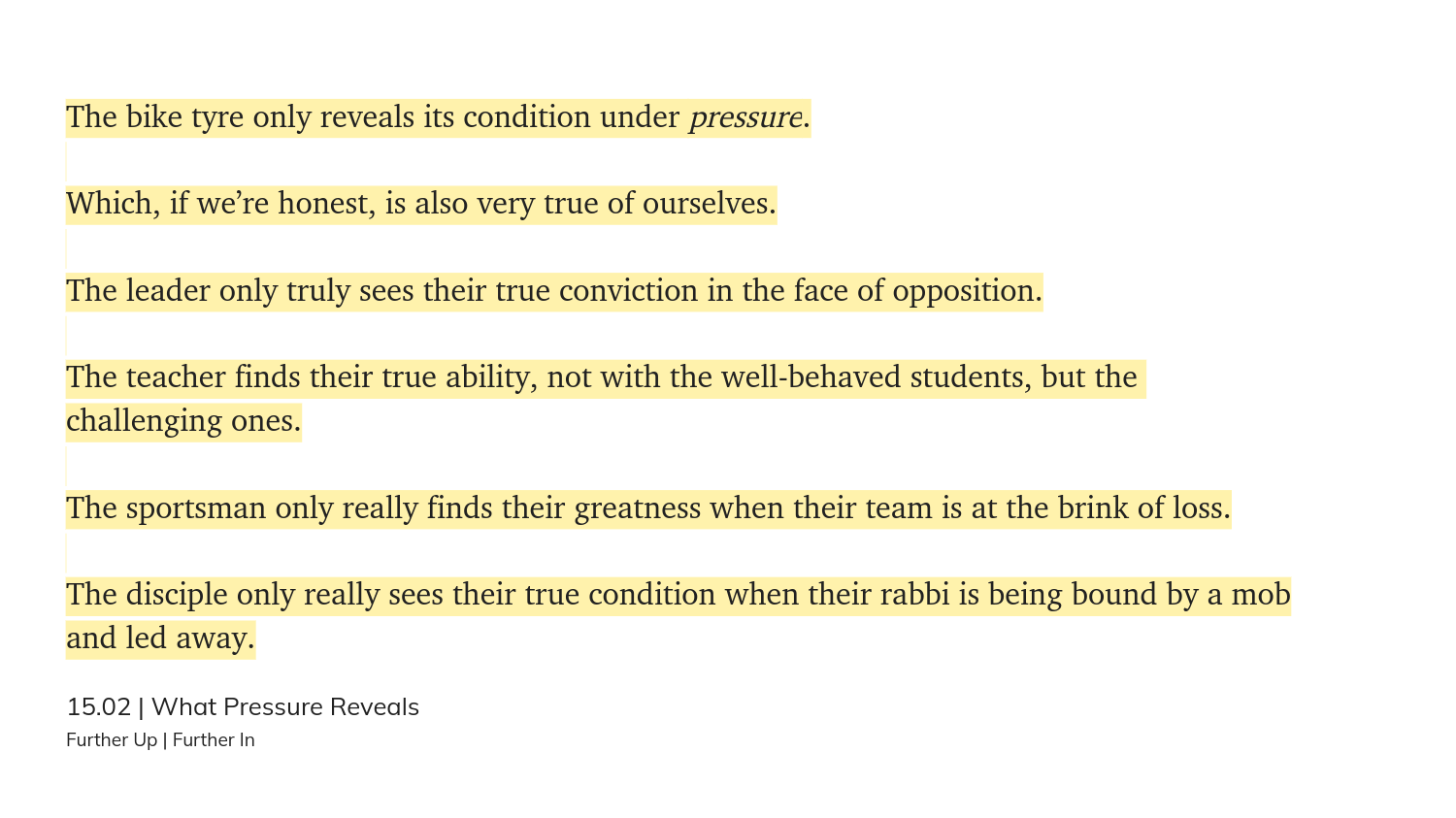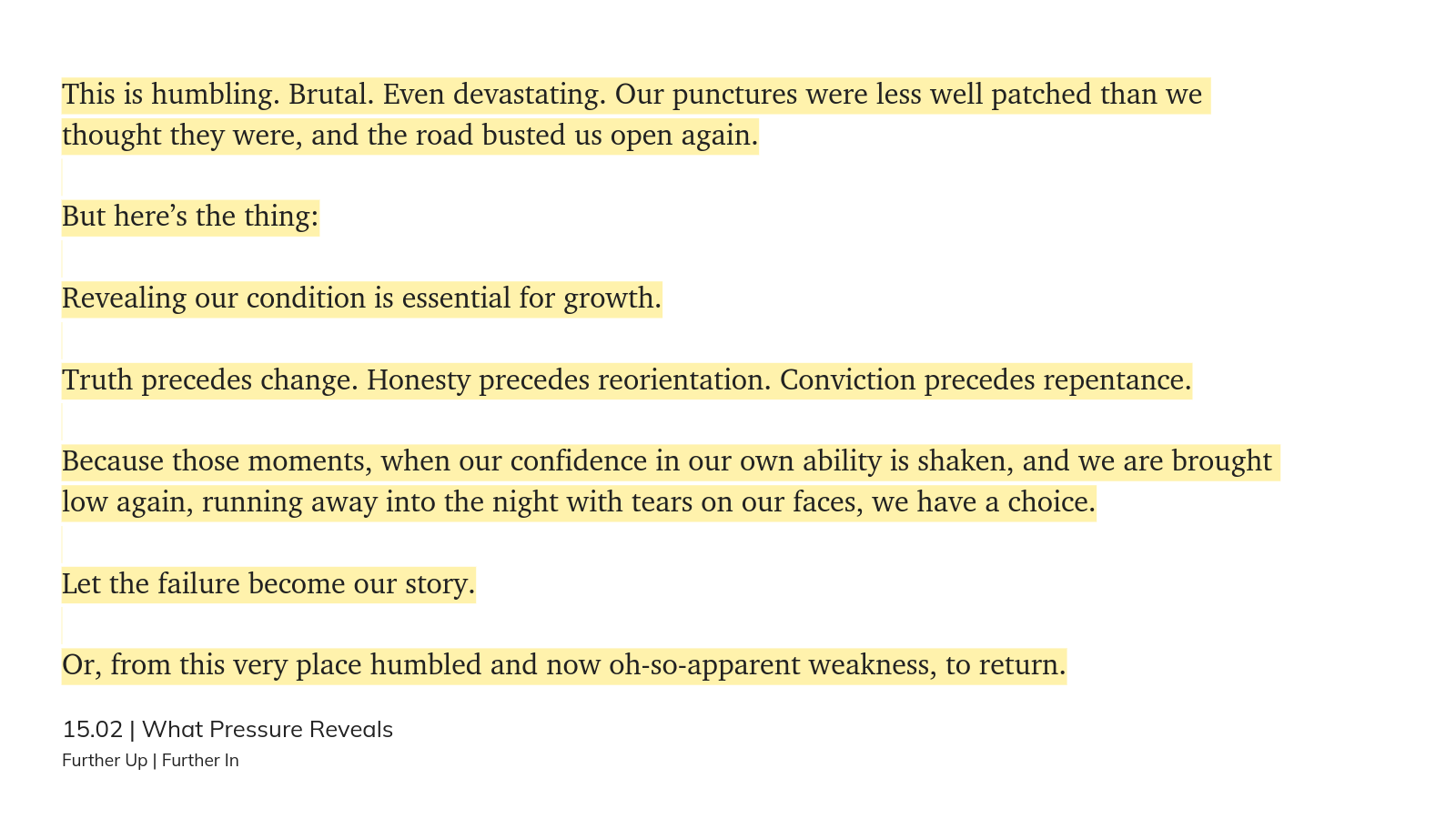Baseline Principles for Teams
The five foundational principles for healthy teams.

Issue No. 21
As I build this newsletter (and a podcast and YouTube channel) in the open, you will get updates occasionally.
This past week, I've been experimenting with posting more on LinkedIn. Promoting my work on LinkedIn makes me squirm! 🤮
I believe what I say is valuable to others, so I've bitten the bullet and decided to post more regularly on LinkedIn (I'm skipping a return to X/Twitter for now or trying to master Threads).
However, some posts and the need to create content still made me feel icky this week.
And I started to feel like my values and how I was promoting myself didn't add up. 🤒
So, I've followed my advice from last week's post on principles and written these principles for how I will engage on social media. I would love your feedback.
Onwards to this week's issue which is focused on ensuring your team or organisation has a healthy baseline before you try to implement anything more sophisticated like operating principles.
💬 In this issue, I cover:
- Baseline Principles for Teams
- The Leader Sets the Tone for the Group
- How do we establish these five foundational principles?
- Product and Engineering Require the Same Solid Foundation to Achieve Success Together
- 🔦 Highlight of the Week
Baseline Principles for Teams
All leaders must establish a healthy baseline before doing anything else with their team.
These baseline or foundational Principles of how teams and organisations should work together are covered best in the book “The Five Dysfunctions of a Team” by Patrick Lencioni and are captured in this image.

- Psychological Safety & Trust - A physiologically safe environment where team members can be vulnerable without fear of repercussions.
- Healthy Conflict - The best decisions are made when team members can openly air their opinions. The team can engage in unfiltered, passionate debate about key issues rather than veiled discussions and back-channel comments.
- Commitment - Clarity and buy-in. We have a clear direction, and team members commit to decisions.
- Accountability - Help people get back on track when they’ve made their commitments. We commit to a clear plan of action and call our peers on actions and behaviours that may seem counterproductive to the team's overall good.
- Outcomes - Focus on collective outcomes. We focus on the need to create results and put the team's needs ahead of our own (ego, career development, recognition, etc.)
Teams won't work without getting these fundamentals right. These principles form the basis by which the relationships in a team will live or die. I don't believe an organisation (or a team) can build a great product without nailing these basics.
The Leader Sets the Tone for the Group
A leader's actions and behaviour significantly impact a team's psychological safety and trust.
By fostering an environment where team members feel comfortable sharing their thoughts, ideas, and concerns without fear of retribution, a leader can create a strong foundation for collaboration and innovation. This includes being open to feedback, admitting mistakes, and treating everyone fairly. When a leader demonstrates these qualities, it sets a positive example for the rest of the team, encouraging them to follow suit and contribute to a healthy, trusting, and psychologically safe work environment.
I've found that many leaders will nod and agree with this, and their internal monologue will say, "Yes, this is exactly what I'm doing".
However, if they were to hear what their team says behind their back, they would be surprised by the gap between their self-image and what the team thinks.
This is because most leaders are not vulnerable with their team. Vulnerability is the key to authentic leadership and creating psychological safety and trust. If you can't open up about your deepest fears, how can you expect someone on your team to speak up without fear of repercussion?
If you are a manager of managers, how can you expect your managers to lead authentically if you are not authentic with them AND the whole organisation? Authenticity doesn't end inside your team meeting; you must lead authentically in your all-hands meeting in front of everyone.
Wow, this is tough!
No amount of lecturing others about the theories of great leadership will have an impact if you cannot demonstrate the characteristics of authentic and open leadership yourself.
So, if you are a leader, and I would argue that everyone is a leader, I would encourage you to lead with authenticity and openness so that those around you feel like it's a safe space to share what is happening inside them.
How do we establish these five foundational principles?
I wish there was a simple formula I could give for you to follow here. Unfortunately, like many things in life, this is a people problem, not a technical one, requiring deeper conversations.
Some things we can try include:
- Lead by example by being open to feedback, admitting mistakes, and showing vulnerability.
- Invest in team-building activities and workshops to enhance trust, communication, and collaboration skills outside the normal day-to-day. Just breaking bread together and talking about our personal lives, hobbies and interests can (not) surprisingly impact team cohesion and allow deeper bonds to form in the team. This is especially important for remote or "hybrid" teams, as these teams have fewer in-person opportunities to get to know each other outside of work.
- Write a social contract or team working agreement together. This can be invaluable in setting expectations and fostering a positive team culture. Regularly reviewing and updating this agreement during team retrospectives ensures that it remains relevant and effective in guiding team interactions.
- Encourage open communication and feedback through regular check-ins, team retrospectives, and anonymous surveys.
- It might also be worth actively tackling this subject by working through this topic together. For example, you could read through the book “The Five Dysfunctions of a Team” by Patrick Lencioni as a team. Be careful how you facilitate this if you are the manager of the team, it can often be best to ask someone else to facilitate or rotate the faciliation between team members. Remember this should be an invitation and optional and not something you force on them or it will fail and could even set you back.
Building a solid foundation takes time and effort. Be patient and persistent in cultivating these principles within your team. As you do so, you'll see the positive impact on your team's performance and overall success.
Product and Engineering Require the Same Solid Foundation to Achieve Success Together
These foundational principles apply to the relationship between Product and Engineering as well.
With enough trust in each other, a product and tech partnership can overcome every obstacle and jointly steer towards successful outcomes.
Without these principles, especially trust, the product and tech relationship will rarely deliver successful outcomes. No amount of process or documentation of roles and responsibilities will overcome the need for a partnership grounded in trust.
The more trust we have, the less time and effort we need to spend aligning with our principles and discussing who owns the territory.
I'll probably write more about this in the future as there is much more to say here, including how the relationship between the CPO and the CTO sets the tone for the whole organisation.
🔦 Highlight of the Week
My brother-in-law, Chris Mitton, writes a daily devotional, Further Up | Further In. While I wouldn't say I am "religious", I have enjoyed regularly dipping into his devotional. I find his writing brilliant and insightful.
Chris' analogy in 15.02 | What Pressure Reveals felt very fitting for this issue. As a leader, I have failed under pressure so many times.


💬 If you had some thoughts while reading this, I would love to hear them in the comments.



